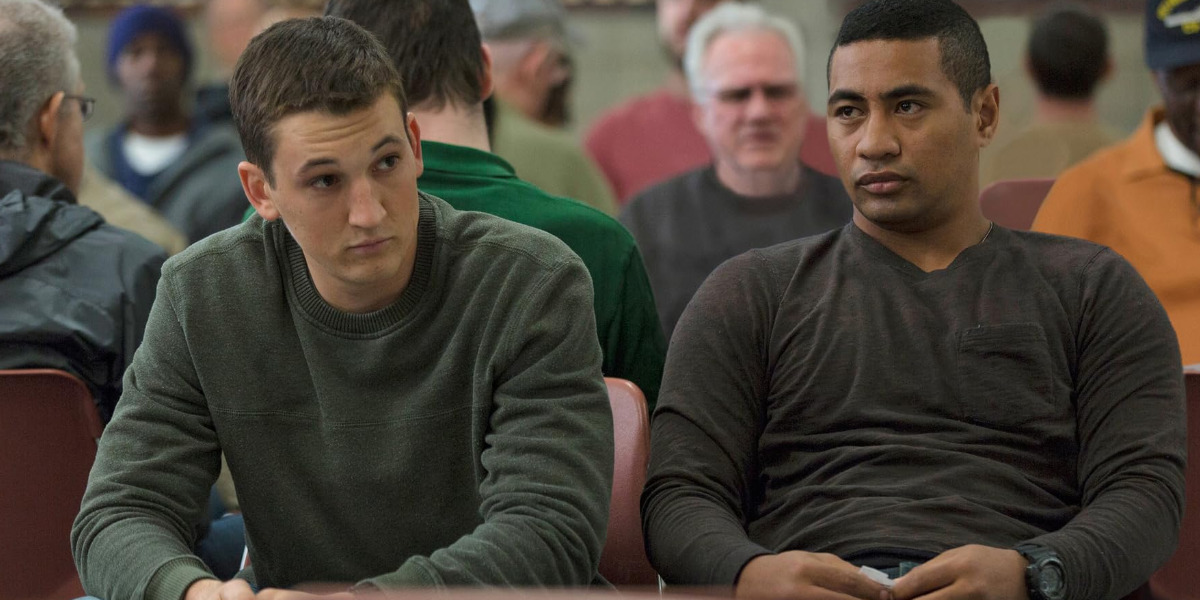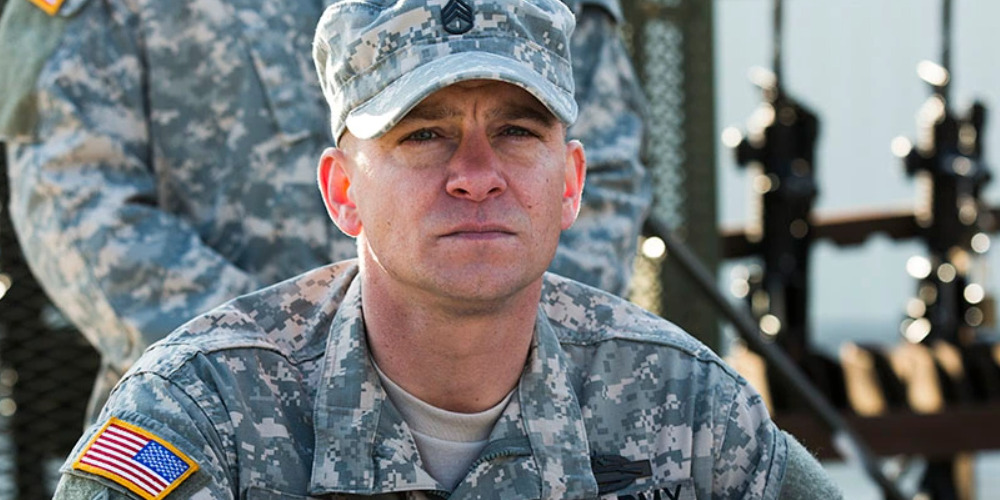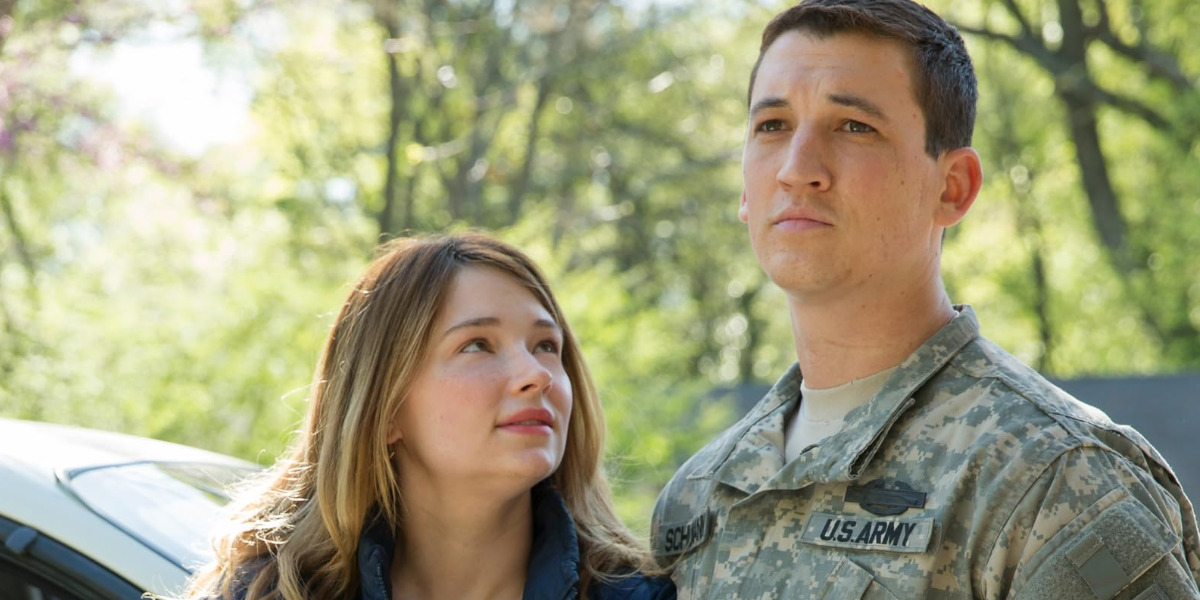‘Thank You For Your Service’ is a 2017 war drama film directed by Jason Hall that revolves around the lives of three soldiers upon their return from Iraq. After experiencing tragic war horrors, Sergeant Adam Schumann and his military companions Tausolo “Solo” Aieti and Billy Waller return to their families. However, the transition into civilian life proves difficult after time on the battlefield has drastically changed these men. With several logistical hurdles in their way and the heavy weight of their trauma, Adam and his friends try to overcome their past and seek professional help.
Centering around Adam Schumann, the film digs into the life of a war veteran as he tries to find his footing in civilian life while confronting the damage that the war left on him. With realistic and grounded depictions of PTSD and suicidal ideation, ‘Thank You For Your Service’ crafts a genuine and emotional tale about veterans and their experiences. Due to the same, viewers must be curious about the film’s connection to real life.
Life After War: The True Tales That Inspired the Film
Yes, ‘Thank Your For Your Service’ is based on a true story. It is an adaptation of David Finkel’s 2013 non-fiction book of the same name. In 2007, the Pulitzer Prize-winning journalist spent several months as an embedded reporter among 2-16 Rangers and chronicled the story of these soldiers, including Sergeant Adam Schumann, in his book ‘The Good Soldiers.’ Years later, when the soldiers returned home, Finkel learned about their experiences reentering civilian life, examining psychological wounds left behind by the war in his book ‘Thank Your For Your Service.’ In his eponymous directorial debut, writer/director Jason Hall aims for a similar goal and tries his best to maintain authenticity throughout the film’s runtime.

Regardless of the creative liberties taken for the benefit of the storyline, the film succeeds in its objective to realistically portray Schumann’s story and highlight the veteran’s experiences after they return from war. When discussing the same in an interview, Hall described his method behind ensuring authenticity within the narrative. “You wanna get all the details right with Adam [Schumann] and Amanda [Doster] and Tausolo [Aieti] and [Michael] Emory and find a way into these people so that you can bring the sense of who they are [as unique individuals] to the screen,” he said.
By collaborating with the real people involved in the events that inspired his film, Hall successfully maintained a sense of realism in the story that easily resonates with the audience. Additionally, the film provides an accurate representation that many war veterans can relate to. To do so, Hall took great care to include authentic viewpoints and voices in making his film. The actors, including Miles Teller, Beulah Koale, and Joe Cole, underwent an intense boot camp with trained professionals.
This experience helped shape the cast members’ body language and understanding of their characters and gave them a glimpse into the reality of many soldiers’ lives. Leading man Teller, specifically, got to converse and connect with Schumann, the inspiration behind his character. The latter discussed his time with the actor in an interview and said, “You could tell Miles [Teller] really wanted to get that [his portrayal of Schumann’s character] right, and the questions he asked really made me comfortable. I think if you ask the right questions, you don’t have to ask a hundred of them—one question might cover everything.”

Schumann also consistently consulted Teller, imparting advice on the actor whenever needed. Therefore, Teller’s performance, which largely informs the film’s emotional drive, has an intimate and personal basis in reality that cements the narrative’s authenticity. Moreover, the film focuses on the absurdly complicated and long bureaucratic processes awaiting veterans upon their return. According to research conducted in 2013 by the government, on average, 22 military veterans die by suicide daily.
The film faithfully portrays the truth behind this statistic and shines an essential light on the issue. The narrative’s ability to convey the reality of war veterans significantly helps raise awareness. Through Adam Schumann and Tausolo Aieti’s personal battles and circumstances, the film can convey the experience of war veterans as a whole authentically. Although an account of an individual’s struggles with war’s psychological scars, it ultimately provides a universal understanding of similar experiences.
Expanding on the same, in a conversation with The Emory Wheel, Teller said, “It’s my belief that if you make something super personal, it becomes universal because the more personal it is, the more human it is.” As such, within the film’s narrative, veterans and civilians alike will find a moving story about the lived experiences of real people. To stay true to reality, Hall based ‘Thank You For Your Service’ on David Finkel’s non-fiction account of real veterans’ lives and sought insight from the real-life inspiration behind his protagonist, Adam Schumann.
Read More: Best War Movies of the Decade


You must be logged in to post a comment.